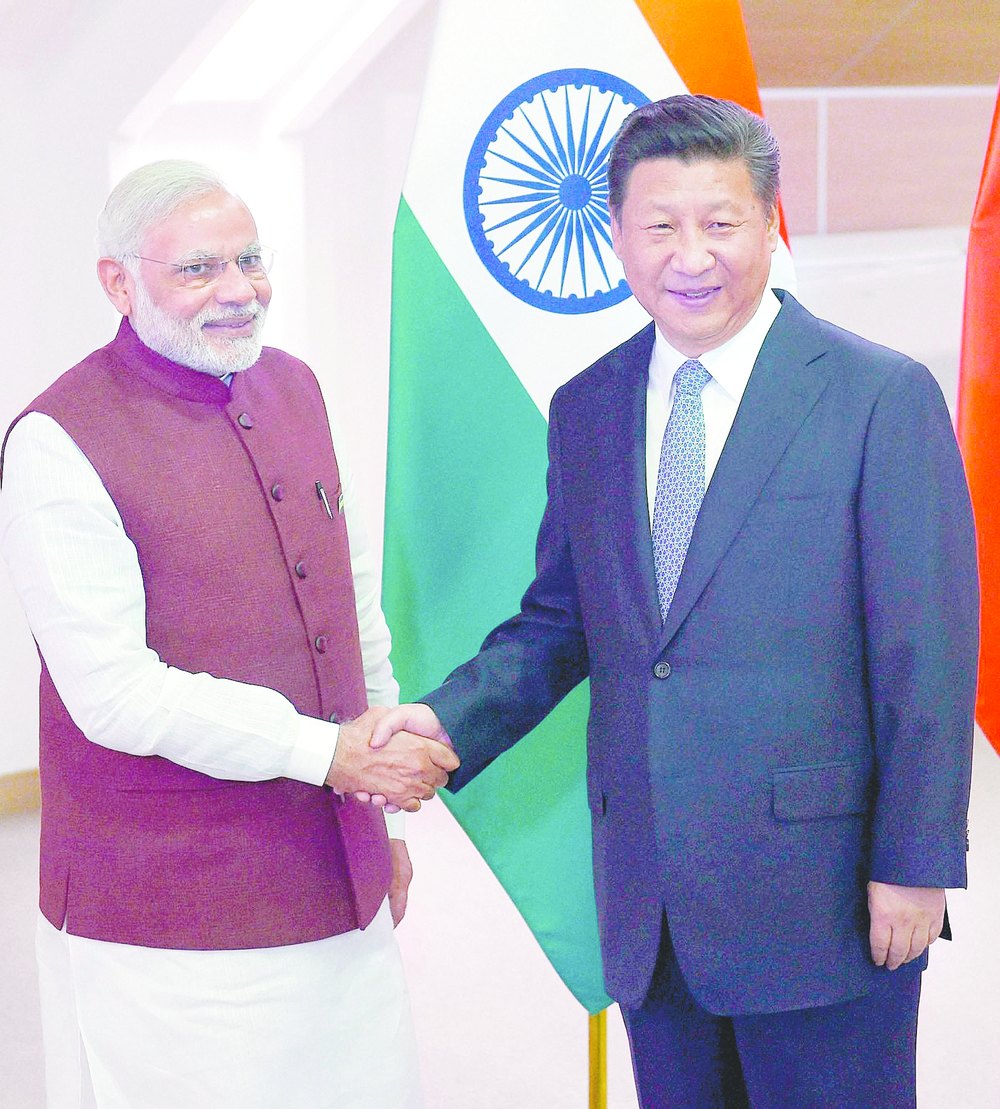
Ufa (Russia), July 8: Narendra Modi today told Xi Jinping that Beijing's opposition to Delhi's attempts to get Islamabad censured by a UN panel for allowing bail to Mumbai terror attack accused Zaki-ur Rehman Lakhvi was unacceptable, and could affect bilateral warmth.
India has earlier, too, articulated concerns over China's move but officials suggested Modi's comments today were the most direct yet. This was the Prime Minister's first meeting with the Chinese President since tensions emerged over Beijing's support to Pakistan at the UN.
"This matter did come up, and it was discussed in detail," foreign secretary Subrahmaniam Jaishankar said this evening, after Modi met Xi here on the margins of the Brazil-Russia-India-China-South Africa and Shanghai Cooperation Organisation summits. "We expect this to also be discussed in detail by the two governments in the coming days."
Modi's message was "direct", Jaishankar said - something that Xi and the Chinese delegates appeared to recognise, the foreign secretary suggested.
Modi met the Chinese President at Xi's hotel, ahead of a possible meeting between Modi and Pakistan Prime Minister Nawaz Sharif that the foreign office refused to confirm or deny.
"There is always a possibility of a meeting," Jaishankar said. Pakistani newspapers have indicated India has approached Islamabad for a Modi-Sharif meeting.
Early in June, India's permanent representative to the UN, Asoke Kumar Mukherjee, had written to the UN committee set up to monitor sanctions against individuals and groups linked to al Qaida.
Pakistan had violated UN resolutions by not blocking finances to Lakhvi, a man formally designated a terrorist by the UN, India argued. These finances allowed Lakhvi to secure bail from a Pakistan court that is hearing charges against the man accused of orchestrating the Mumbai attacks that left over 160 dead.
The 15-member UN panel met last month, but China blocked any censure by the panel arguing that India had not provided enough information to justify any action against Pakistan.
Jaishankar today rejected China's argument.
"There are many other countries on the committee. If there was a problem with our evidence, why did no one else have any concerns?" Jaishankar asked. "The whole world knows what Lakhvi was up to."
China's June 23 decision to block India's push for a censure against Pakistan had prompted Modi to send a diplomatic message to Premier Li Keqiang indicating Delhi's concerns, through India's mission in Beijing.
China's vote could raise doubts about its unambiguous opposition to all forms of terrorism, Modi had told Li. "Today, the Prime Minister explained how it (China's move) was perceived in India," Jaishankar said.
Foreign minister Sushma Swaraj had also articulated India's concerns to her Chinese counterpart Wang Yi in Kathmandu on the margins of an aid conference to help Nepal's reconstruction two months after a series of earthquakes wrecked the Himalayan country.










